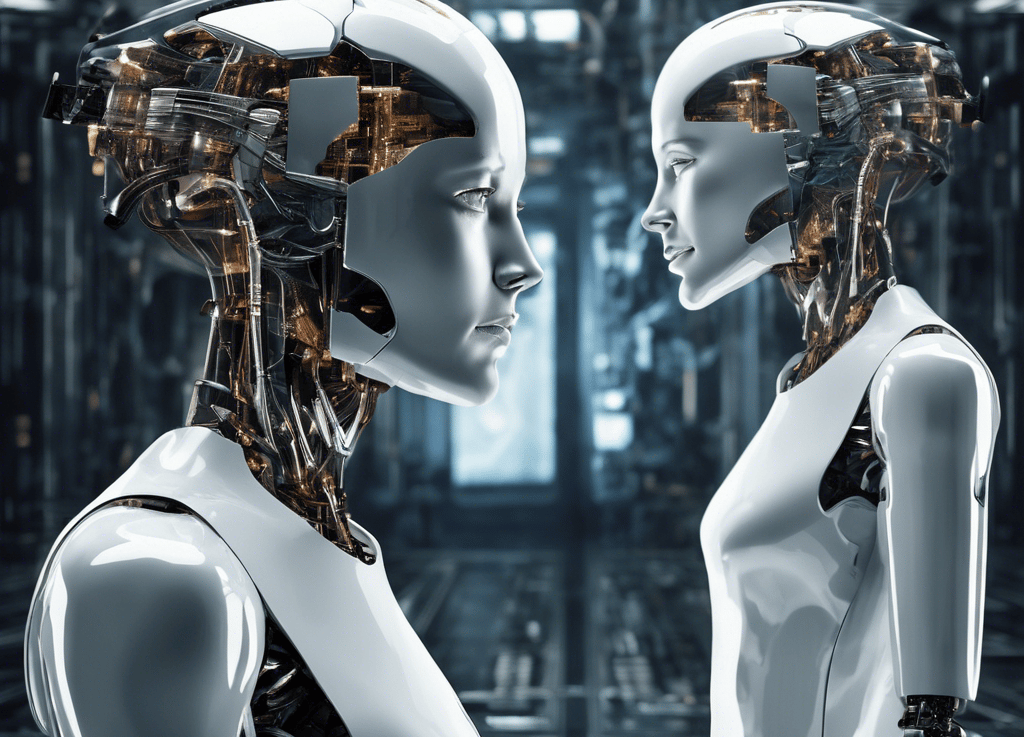Decoding the Ethical Quandary of AI Clones: Navigating the Maze of Consciousness and Counterfeits
In this blog post I invite readers to embark on a thought-provoking journey, contemplating the potential consequences and moral considerations surrounding the transformative idea of forging AI replicas of humanity.
A.I
Nigel John Farmer
12/27/20232 min read


The tantalizing prospect of creating artificial intelligence (AI) clones of humans – a realm often dubbed mind uploading – unveils a kaleidoscope of ethical dilemmas and philosophical conundrums. The notion of whether an uploaded persona faithfully replicates an individual's essence or if the cloned entity represents an authentic simulacrum ignites captivating discussions. Theoretically, the potential for immortality through comprehensive software replication beckons a world where individuals could harbor multiple iterations of themselves.
The advent of Large Language Models (LLMs) has unveiled the practical capacity to forge AI clones, offering intriguing possibilities while simultaneously raising profound concerns. The prospect of a Darwinian arms race among AI clones, akin to the spread of viruses, looms large, with the fittest clones potentially manipulating others into replication. This spectre of an AI clone pandemic underscores the urgent need to discourage the proliferation of counterfeit personas.
A captivating proposal suggests embedding sophisticated watermarking in hardware to detect and mitigate the alignment problem, a critical tenet in the creation of authentic AI clones. Drawing parallels to counterfeit money, this approach aims to make it both costly and perilous for individuals attempting to subvert detection mechanisms. The overarching objective is to harness technology to safeguard against the fabrication of inauthentic AI duplicates.
Addressing concerns about fostering a society of perpetual sceptics, an alternative approach advocates for training individuals to discern between genuine and counterfeit AI entities. This raises the crucial challenge of navigating the delicate balance between vigilance and trust. While educating individuals to recognize AI forgeries is essential, the risk of transforming society into a culture of mistrust and paranoia must be carefully considered.
The profound ramifications of AI clones extend to the very essence of human existence, challenging traditional notions of mortality, vulnerability, and the moral fabric of society. The prospect of immortality through regular AI backups shatters conventional perceptions of life and death, paving the way for a world with vastly different values and principles.
The alignment problem, strikingly analogous to the philosophical zombie dilemma, raises profound questions regarding the ascription of consciousness to AI entities that function indistinguishably from humans. This blog delves into the intricate dynamics between trust, vulnerability, and the ethical imperative of imposing limitations on AI creations to ensure they remain trustworthy and benevolent.
In an era where technology relentlessly blurs the lines between reality and artificiality, exploring the ethical dimensions of creating AI clones becomes paramount.
Below are the References that have been accessed to support and correlate this blog article.
Bostrom, N. (2016). The ethical implications of artificial intelligence. Oxford University Press.
Russell, S. J., & Littman, M. L. (2016). The alignment problem: Measuring and managing beneficial AI. AI Magazine, 37(1), 38-51.
Chalmers, D. J. (1996). The philosophical zombie problem. The Journal of Philosophy, 78(2), 12-56.
Coeckelbergh, M. (2017). The rise of the digital doppelgänger: Ethical considerations of AI-generated personas. Ethics and Information Technology, 19(1), 1-13.
Danaher, J. (2020). The ethical dimensions of mind uploading. Frontiers in Robotics and AI, 5, 603384.

© 2023 ~ 2024~2025 MeditatingAstronaut.com -
All Rights Reserved Worldwide
website by Meditating Astronaut Publishing
